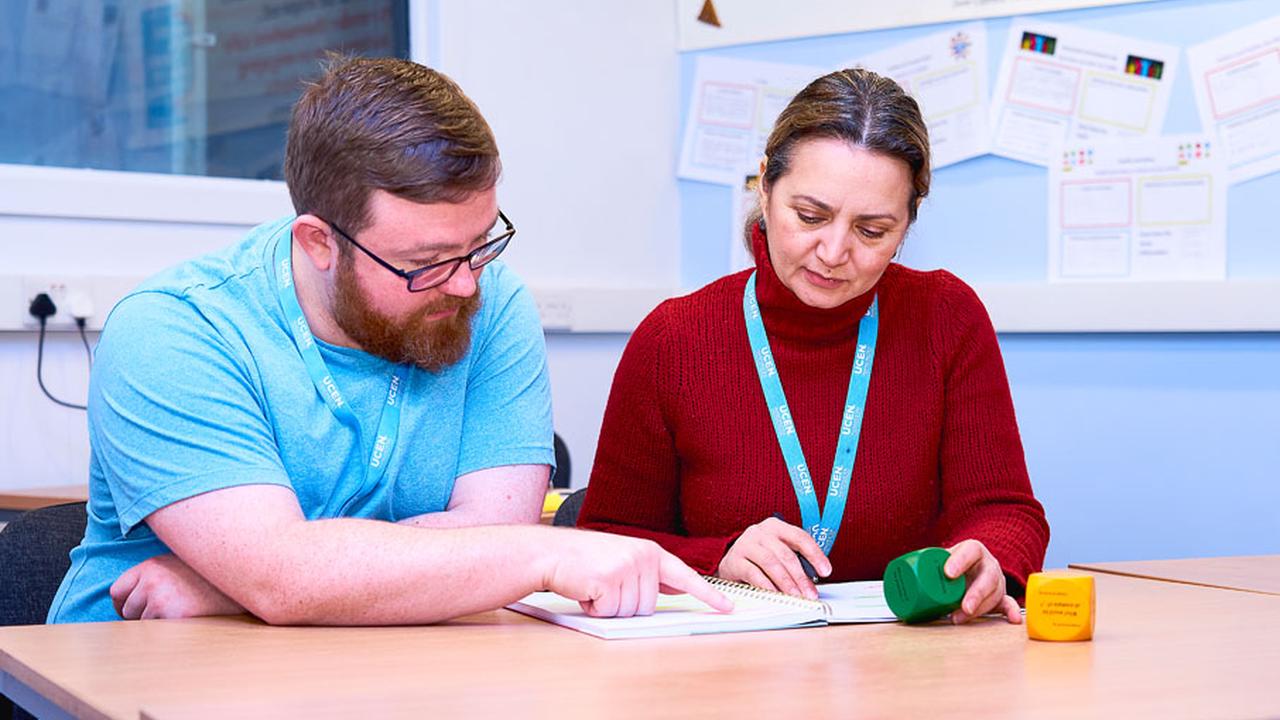Teacher Career Progression in the UK: Opportunities and Pathways

A career in teaching offers many exciting opportunities and pathways to advance and excel within the UK education system.
From specialisations in primary and secondary education to addressing the diverse needs of students in special education settings, teachers play an important role in shaping the future of generations.
With the teaching salary scale ranging from £24,000 to £62,000, there's plenty of room for growth!
This guide offers career advice for teachers who are looking to advance in their careers, discusses the range of pathways in teaching post-PGCE, and the professional development courses that can help teachers upskill.
Specialisations in teaching
There are two main areas of teaching; primary and secondary. Both areas require a PGCE so you can achieve Qualified Teacher Status (QTS).
Primary education
Specialising in ages 5-11, primary teaching can be a rewarding career for those who enjoy working with young children and want to make an impact on their lives.
Although the role can be more challenging that teaching secondary, with lots of planning and preparation required, the sense of accomplishment in witnessing children's growth and development is unparalleled.
As a primary teacher, you play an important role in laying the foundations for lifelong learning and attitudes towards education. You have the opportunity to enrich children with knowledge in specialist subjects such as mathematics, literacy, science, or art.
Secondary education
Specialising in ages 11-18, secondary teachers take on the important role of preparing teenagers for further education or the workforce. The role can be incredibly rewarding, with each day offering something new.
Teachers in secondary schools may have less intense lesson planning to do, but may experience more pressure due to GCSEs, and the expectations to prepare students for success.
Special needs education
Specialising in supporting students with diverse learning needs, special needs education offers a deeply rewarding career path for teachers committed to transforming the lives of pupils who need extra support.
Whether in primary or secondary settings, special needs teachers play a crucial role in ensuring that every student has access to quality education and opportunities for growth - regardless of their abilities or challenges.
Career progression opportunities
Subject leader/Head of department
Subject leaders or heads of department are responsible for the management and coordination of a specific subject area within the school; including curriculum planning, assessment, staff development, and ensuring high standards of teaching and learning within their department.
Head of year/key stage
Heads of year or key stages oversee the pastoral care and academic progress of students within a specific year group or key stage. Their role is to provide support, guidance, and interventions to promote students’ well-being and achievement.
They also support form-tutors and other teachers who work with various student-related issues.
SENCO (Special Educational Needs Coordinator)
SENCOs play a vital role in supporting students with special educational needs and disabilities (SEND), coordinating provision, liaising with external agencies, and ensuring that all students have access to appropriate support and resources to reach their full potential.
They make sure teachers are providing tailored learning plans and adequate support for neurotypical students and those with additional support needs.
Assistant headteacher
Assistant headteachers work closely with the headteacher and deputy headteacher to assist in various administrative and strategic duties, including staff supervision, student discipline, and school improvement initiatives.
Deputy headteacher
Deputy headteachers support the headteacher in the overall management and leadership of the school, often overseeing specific areas such as curriculum development, staff management, and student welfare.
Headteacher
The headteacher is responsible for overseeing all aspects of school management, including curriculum implementation, staff recruitment and development, student welfare, and community engagement.
Headteachers also represent the school to external stakeholders, such as parents, governing bodies, and regulatory authorities. They are ultimately accountable for the school's overall performance and outcomes.
Supply teaching
If you want some flexibility in your career, teaching can offer that! Supply teaching allows teachers to work on a temporary basic covering for absent teachers in various schools in their district.
Although this flexibility can be enjoyable, the role of a supply teacher can often be challenging depending on the behaviour of the students at the school. A good supply teacher typically has teaching experience, adaptability, and patience.
To become a supply teacher, you’ll require a PGCE qualification.
Ongoing professional development
Further education opportunities for teachers are essential for continuous professional development and enhancing teaching skills. UCEN offers specialised programmes like the Internal Quality Assurance of Assessment Processes and Practice within teacher education.
This course equips educators with the knowledge and skills to effectively monitor and maintain the quality and consistency of assessment practices within educational settings.
Through hands-on training and theoretical learning, teachers can ensure that assessment processes align with regulatory standards and promote student learning outcomes effectively.
If you want to pursue career progression as a teacher, explore our full range of courses here and enrol today to get started on your journey!

